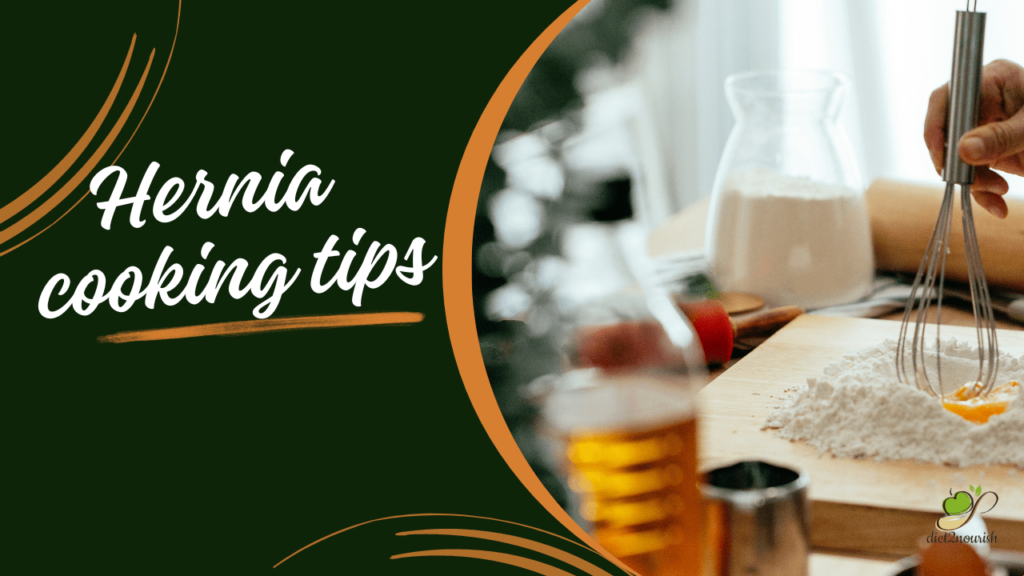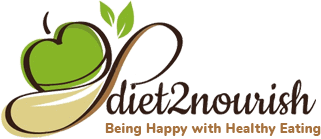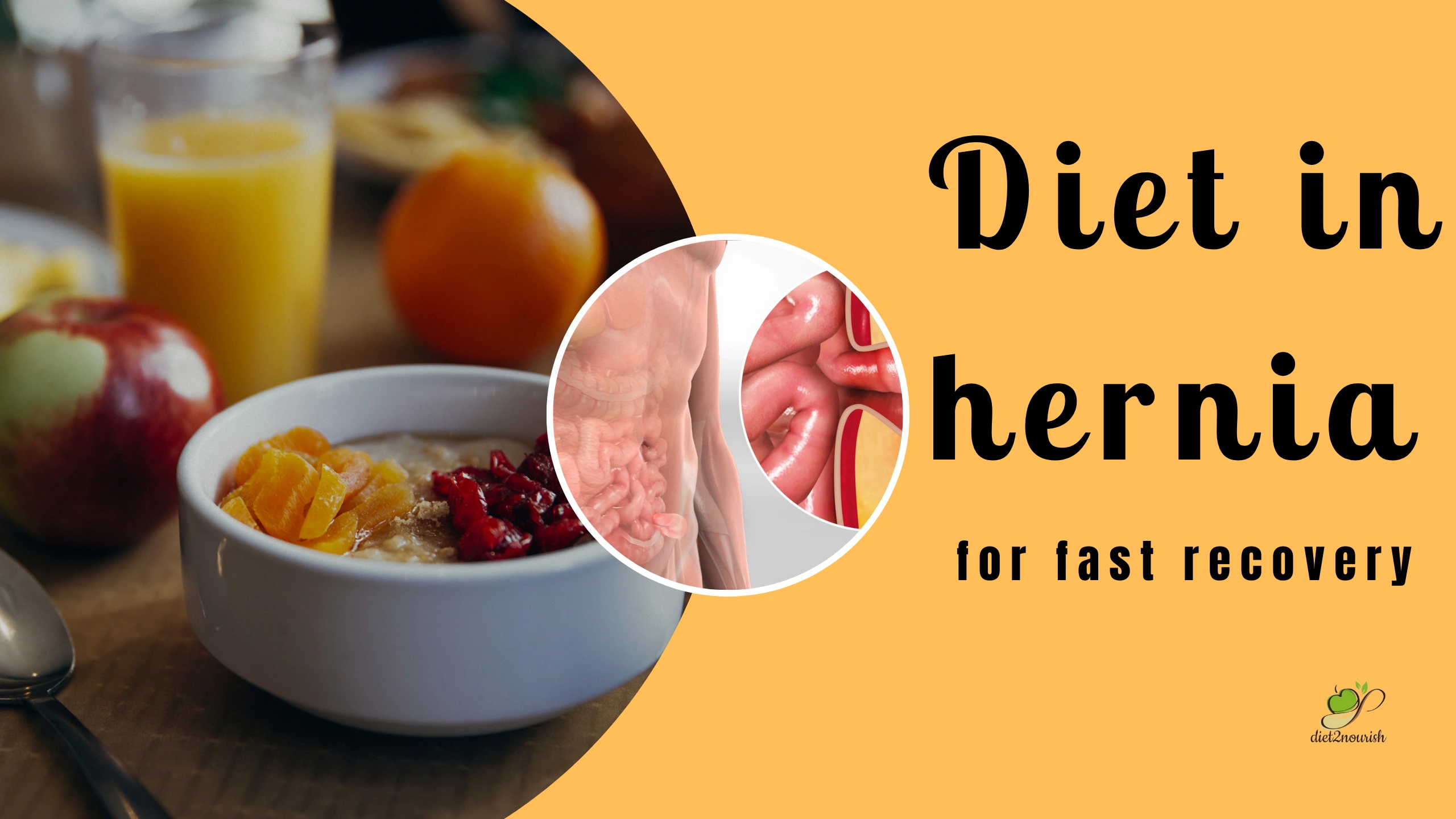Diet in Hernia
When hernias begin, the internal tissue is pushed by the muscle gap. So it’s viable for part of the bowel to swell by the opening. The risk of this is very low, but when it happens it needs emergency treatment.
Consult an expert if you have:
• A painful bulge that doesn’t reduce in size
• Heavy Pain
• Vomiting
• Difficulty with bowel movement
• Bloating
So if you feel any symptoms, you can consult with the doctor or dietitian so that they can give you a diet in Hernia which is very helpful to solve this problem.
Hernia and dietary changes:

Indigestion is the primary symptom of a hernia. Most of the extreme health complications arise because of untreated chronic indigestion. It includes esophageal scarring and internal bleeding. In this situation, diet plays a significant role to bring improvement. Most of the studies explain the relationship between diet and indigestion. So you need to focus on diet in Hernia situation along with your treatment.
Food to Eat by Hernia patients:
List of food that hernia patients can eat by the doctor consultation:
• Aloe vera juice
• Cabbage juice
• Carrot juice
• Yogurt
• Almonds and chia seeds
• Soy milk
• Almond milk
• Artichokes
• Carrots and peas
• sweet potatoes
• Green beans
• High-fiber foods i.e oatmeal, whole grains, beans and legumes
• Non-citrus meals
• Green tea
Foods Hernia patients should avoid:

Processed foods
High-starch meals contain white bread, noodles, and pasta. That leads to constipation and high pressure while passing stool which can worsen the hernia pain. So kindly avoid the below listed processed foods.
• Flaked/ puffed/ shredded/ breakfast cereals
• Crackers, cookies and salad dressings
• Pasta sauce and other pre-made sauces
• All carbonated liquids
Fatty items
Foods such as processed meats, high-fat dairy product, fried items. Foods containing Vegetable oils are high in saturated or trans fats. These ingredients can cause infection and weight gain which makes the situation worse.
Acidic foods
There may be symptoms of GERD which includes acid reflux disease. It’s good that you keep away from acidic foods.
Onions
Garlic
Limes
Oranges
Tomato
Canned beets and artichokes can worsen the acid reflux disorder related to hernia.
Artificial sweeteners
If you had been analyzed with a hernia, restrict the intake of items. Such as alcohol, caffeinated tea, Cream milk, beverages, jelly, frosting, frozen desserts, and baked desserts, cookies, pies and pastries.
Cooking Tips to keep in mind for Hernia patients

These cooking tips will help hernia patients to keep away from acid reflux disease. These you can use while preparing or have your meal-
• Use healthy oil such as olive oil, grapeseed oil, and avocado oil to sauté your meal
• Consume whole fibers.
• Don’t deep fry ingredients
• Limit processed and packaged items.
• Drink lots of water.
• Add probiotics in your diet in Hernia.
Do & Don’t for Diet in Hernia:
Do:
- Consume food high in HDL Like walnuts, oats, almonds, and flax seeds
- Eat sardines, salmon, etc fatty fish items.
- Consume protein like egg white
- Fiber rich foods e.g. Whole grains, vegetables, and fruits
- Have skimmed milk
- Have green tea
Don’t
- Avoid Red meat, food that is high in cholesterol
- Avoid Food prepare by reheating the oil
- High cheese and cream food items
- Avoid Saturated foods like butter, ghee, palm oil
Lifestyle changes to prevent hernia:

Focus on weight:
Maintain your weight is important for hernia .As overweight give stress to the body which can lead to stretch the abdominal lining. Which develop the risk factor of hernia.
Don’t Stress muscles:
Heavy Weight lifters, football players ect generally suffers from hernias. So if you play such sports so do warm up before starting the game.
Consume more fiber:
Regular bowel movement help in undue strain. Vegetables, fruits are good for health They have high fiber which prevent constipation.
Careful while lifting heavy objects
Lift knees rather than back. Avoid heavy lifting to mange alone.
Quit Smoking
Risk factors:
Factors that contribute to developing a hernia consist of:
• Being male. Males are much more chance to develop a hernia than women.
• Being older. Muscles weaken as you age.
• Family history.
• Cough, which includes from smoking.
• Constipation.
• Pregnancy. Being pregnant can weaken the stomach muscles which cause stomach pain.
When to see a doctor ?
A doctor should examine heartburn, abdominal pain, bloating, gas issues. Hernias can lead to serious fitness risks, such as esophageal harm and internal bleeding.A physician can prescribe medicines designed to deal with indigestion. But, bringing some changes is the first step as there is unlikely to be any aspect results.Sometimes, if a hernia reasons mainly bothersome symptoms, a surgical operation may be important.
Conclusion
Before starting any diet in hernia, seek advice from an expert or dietitian before the hernia surgical treatment. Make certain you follow a strict healthy eating plan even after the hernia repair to ensure a fast recovery.
FREQUENTLY ASKED QUESTIONS (FAQs)
Yes you can have papaya as non-citrus fruits that are high in fiber .
Avoid high exercise such as cycling, walking, swimming, yoga, ice pack and consume high fiber foods.
Tea have a soothing effect on the digestive system which can improve the hernia symptoms.









